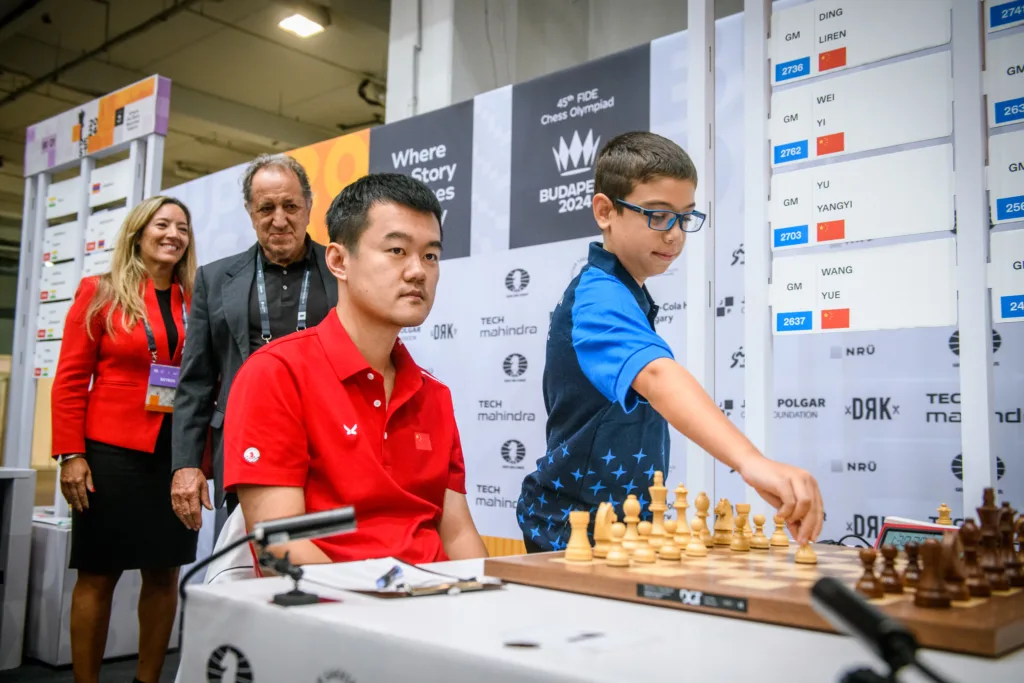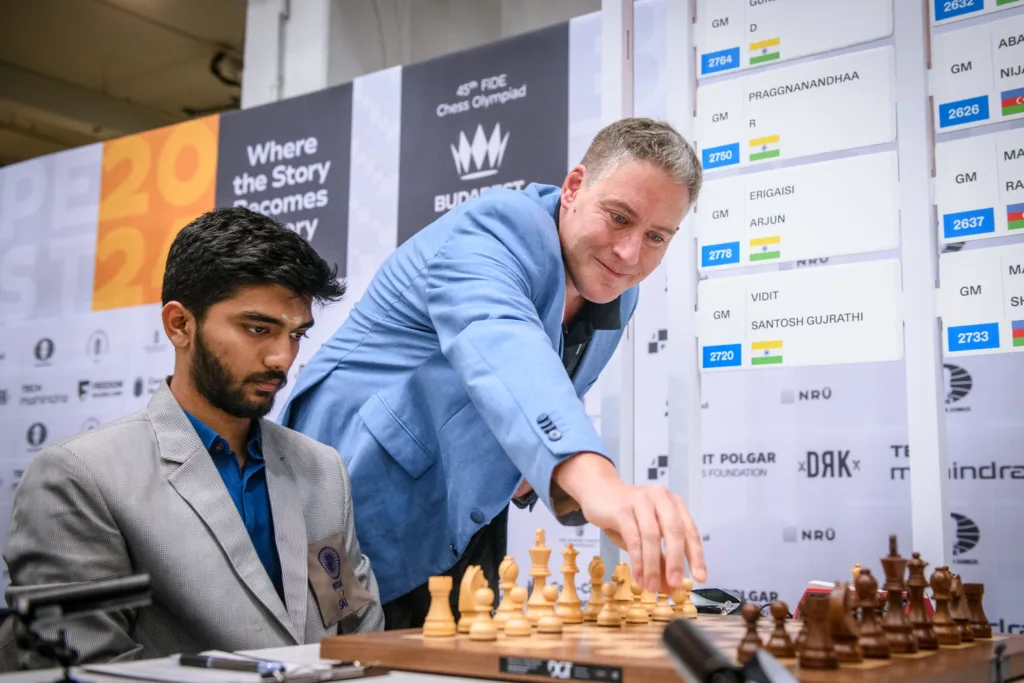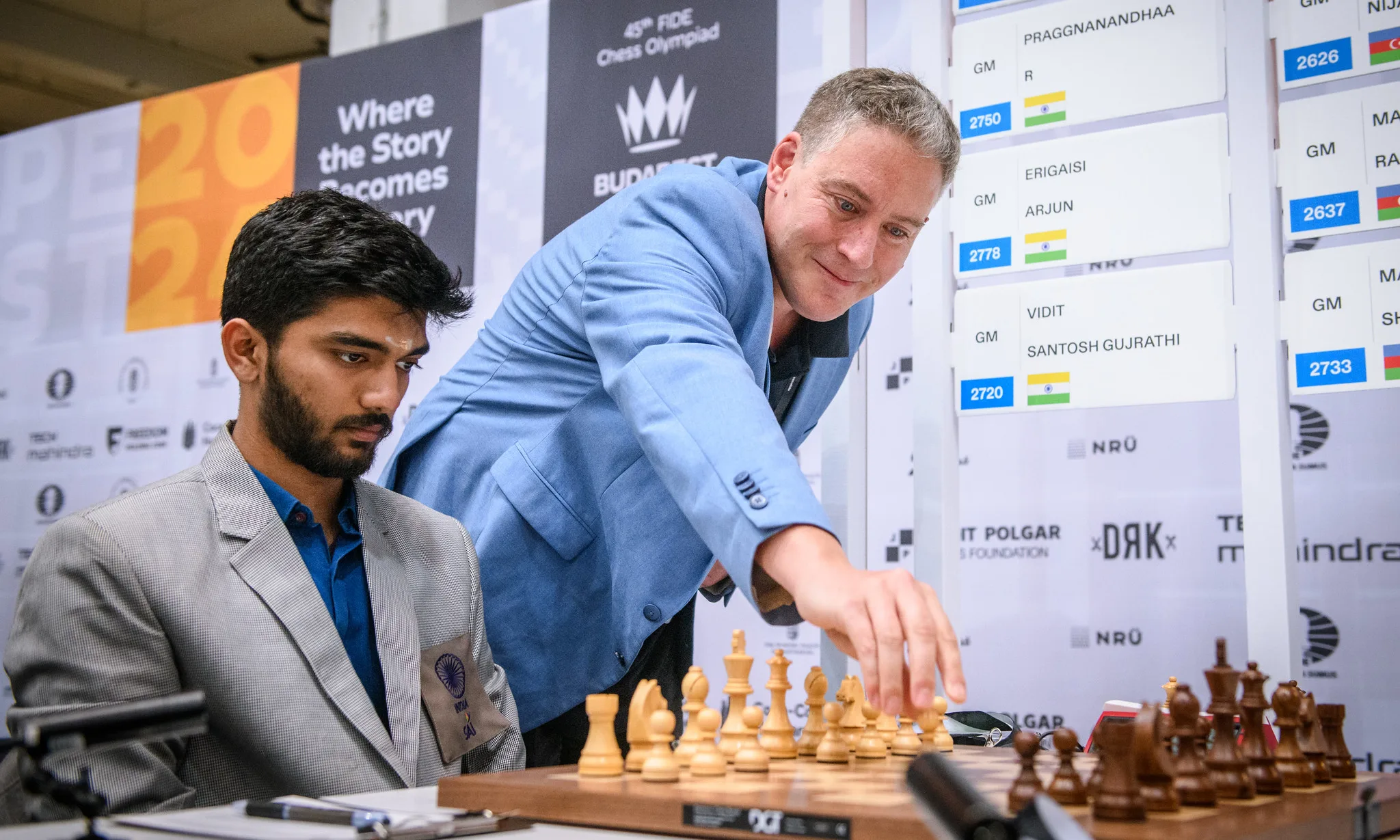The 2024 World Chess Championship between Ding Liren and Gukesh Dommaraju in Singapore promises a historic showdown, blending youth, experience, and global representation.
The Contenders
Ding Liren, crowned World Champion in 2023 after a hard-fought victory over Ian Nepomniachtchi, faces a difficult challenge as he defends his title. At 32, Ding’s journey has been irregular. Following his championship win, he stepped away from competitive chess, citing fatigue and mental health concerns. His return in 2024 was marked by inconsistent performances, with his world ranking plummeting from No. 3 to No. 23. Nevertheless, Ding remains a formidable opponent, demonstrating flashes of brilliance in recent tournaments.

On the other side of the board is Gukesh Dommaraju, a chess prodigy whose meteoric rise has captivated fans worldwide. Fresh off his victory at the 2024 Candidates Tournament in Toronto, the young Indian is ranked World No. 5, boasting a rating of 2783—significantly higher than Ding’s 2728. Gukesh’s poise and maturity, despite his age, make him a compelling contender.
Schedule
The 2024 World Chess Championship match is set to begin on November 25, 2024, and will feature 14 classical games spread over three weeks. Games are scheduled daily at 5:00 PM local time (GMT+8), with rest days strategically placed after every 3 games to ensure players are at their best. The schedule includes rest days on November 28, December 2, and December 6, providing opportunities for preparation and recovery. If the match remains undecided after the 14th game on December 12, tie-breaks will be held on December 13, 2024, to determine the champion.
Journey to the Championship
The road to Singapore has been marked by high-stakes drama. Gukesh’s triumph in the Candidates Tournament was a testament to his tenacity and skill, as he edged out elite competitors, including Hikaru Nakamura and Ian Nepomniachtchi. Meanwhile, Ding’s path has been more introspective, grappling with personal challenges and fluctuating form. Despite his struggles, he has vowed to fight with everything he has to retain his title.
The Prizes
The prize fund for the 2024 World Chess Championship final is set at a substantial $2.5 million USD, with a unique structure designed to reward both performance and participation. Each player is guaranteed $200,000 for each game won, including any victories by forfeit. Prior to the match, both players will receive an advance of $200,000 each, which will later be deducted from the overall prize fund.
The remaining balance is divided based on the final result: if a winner emerges in the classical games with a score of 7.5–6.5 (13 decisive games) or 8–6 (14 decisive games), the champion will take home $1.3 million, while the runner-up will earn $1.2 million. Should the match proceed to tie-breaks, the prize distribution remains the same. Any remaining funds will be disbursed to the players within 14 working days following the conclusion of the championship.
Time control
The match format remains classical, with 14 games played under a 120-minute time control for the first 40 moves, and 30 minutes for the rest of the game, with a 30-second increment per move starting with move 41. If no decisive winner emerges, a series of rapid and blitz tiebreaks will determine the champion.
Tie-break rules
If the World Chess Championship match ends in a tie, the title will be decided through a series of tiebreaks, starting with a rapid chess match of four games. Each player would have 15 minutes on the clock with a 10-second increment per move, and the first player to score 2.5 points or more would claim the championship. If the rapid match is still tied, the players would move to a mini-match of two rapid games with a faster time control of 10 minutes per side and a 5-second increment. A score of 1.5 points would determine the winner.
Should the tie persist, the format shifts to blitz chess with two games at 3 minutes per side and a 2-second increment, requiring 1.5 points to win. If the score remains level, the players would proceed to single blitz games with the same time control, alternating colors after each draw, until one player emerges victorious. Lot drawings before each stage determine which player begins with the white pieces, adding an extra layer of suspense to this dramatic conclusion.

Head-to-Head History
Ding and Gukesh have faced each other three times in classical chess, with Ding winning two games and their most recent encounter ending in a draw. Their games reveal a clash of styles: Ding’s deep strategic understanding versus Gukesh’s sharp tactical acumen.
Current Forms
Heading into the World Chess Championship final, the contrast in recent form between Ding and Gukesh is striking. Since competing in the Candidates Tournament that earned him his last title shot, Ding has struggled to find consistency, playing 79 classical games with a negative record of 12 wins, 17 losses, and 50 draws. His performance rating during this period was 2705, resulting in a loss of 78 Elo points.
Meanwhile, Gukesh has been in phenomenal form, playing an impressive 221 games and achieving 90 wins with only 26 losses and 105 draws. Performing at a 2759 level, Gukesh gained 99 Elo points, underscoring his upward trajectory and sharp competitive edge. This stark difference in form adds an intriguing dynamic to their matchup, with Gukesh entering as the in-form challenger against the defending champion’s experience.
Predictions
For Gukesh, it’s very hard to say. I cannot imagine him winning, but I can see him being anywhere from +2 to -5. I think he will certainly win at least a couple of good games but have some fairly bad losses as well. I don’t think he will do poorly, but I don’t think he will do too well, either. I don’t think he fits into either category, but I think he is not quite ready yet to make the leap, and I think it’s probably more likely that he will have a bad event than a good event.
Magnus Carlsen
Facts
At just 18 years old, Gukesh has already made history as the youngest challenger in the World Chess Championship and has the chance to become the youngest undisputed world champion in history. The current record is held by GM Garry Kasparov, who claimed the title at 22 years, six months, and 27 days old. While GM Ruslan Ponomariov won the FIDE knockout world championship in 2002 at an age slightly younger than Gukesh’s current one, that event did not feature a match against the reigning champion and took place during an era with two parallel world titles.
This final also marks a historic shift in chess, as it is the first championship match where neither player was born in Europe. With Ding representing China and Gukesh representing India, the match highlights chess’s growing global presence and popularity.
Ding enters the match with a unique distinction: he is the lowest-rated world champion of the Elo era, which began in 1971. While previous champions haven’t always been the world’s top-rated player, Ding’s recent challenges have dropped him to 21st in the rankings, making him the first reigning champion to fall outside the top 10.
What’s at Stake?
For Ding, this match is an opportunity to solidify his legacy amidst doubts about his form. For Gukesh, it’s a chance to rewrite history as one of the youngest World Chess Champions. Their clash embodies the timeless narrative of experience versus youth, promising a spectacle for chess enthusiasts around the globe.
As the countdown to November 25 begins, the chess world watches with bated breath. Will Ding’s experience prevail, or will Gukesh usher in a new era? One thing is certain: the 2024 World Chess Championship will be a battle for the ages.

I’m a passionate board game enthusiast and a skilled player in chess, xiangqi and Go. Words for Attacking Chess since 2023.

